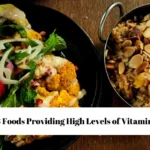Staying hydrated is essential for overall health, and incorporating hydrating foods into your diet can significantly contribute to your daily water intake. Among the many options available, vegetables stand out as some of the most effective ways to quench your thirst while providing essential nutrients. In this blog post, we will explore the 15 most hydrating vegetables that can help keep you refreshed and revitalized.
From crispy cucumbers to vibrant bell peppers, these vegetables not only boast high water content but also pack a punch of vitamins, minerals, and antioxidants. Discover how these hydrating vegetables can enhance your meals and boost your hydration, making them perfect additions to your daily diet.
1. Cucumber
Cucumber is often hailed as one of the most hydrating vegetables, containing approximately 95% water. This high water content makes it an excellent choice for hydration, particularly during hot weather or after exercise. Cucumbers are not only refreshing but also low in calories, making them an ideal snack for those looking to manage their weight. In addition to their hydrating properties, cucumbers are a source of vitamins such as vitamin K, which plays a vital role in blood clotting and bone health. They also contain antioxidants like beta-carotene, which can help combat oxidative stress in the body. Incorporating cucumbers into salads, smoothies, or simply eating them raw with a bit of salt can help increase overall water intake.
Moreover, cucumbers are rich in electrolytes, particularly potassium, which helps maintain proper fluid balance in the body. When dehydrated, it’s crucial to replenish both water and electrolytes, making cucumbers an excellent food choice. Beyond hydration, they also provide fiber, which is beneficial for digestive health. The skins of cucumbers contain a significant amount of fiber and nutrients, so it’s recommended to eat them unpeeled whenever possible. Their mild flavor makes cucumbers versatile in culinary applications, enhancing both taste and hydration in various dishes.
2. Lettuce
Lettuce, particularly varieties like iceberg and romaine, is another hydrating vegetable that contains about 95% water. Often used as a base for salads, lettuce adds crunch and moisture without adding many calories, making it a staple in healthy diets. In addition to its high water content, lettuce is low in carbohydrates and fats, making it an excellent choice for those seeking a nutritious yet low-calorie food. Beyond hydration, lettuce provides essential nutrients such as vitamins A and C, which are crucial for maintaining healthy skin and boosting the immune system. The presence of folate in lettuce also supports cell division and is important for pregnant women.
In terms of dietary fiber, lettuce can contribute to better digestion and satiety, making it easier to maintain a healthy weight. It’s often included in various culinary preparations, from sandwiches to tacos, providing not only hydration but also texture. Lettuce is also known for its soothing properties, often being used in recipes that aim to reduce inflammation and support overall health. Additionally, incorporating lettuce into your diet can help diversify your vegetable intake, ensuring that you receive a range of vitamins and minerals necessary for optimal health.
3. Celery
Celery is another vegetable known for its high water content, comprising approximately 95% water. This crunchy vegetable is not only refreshing but also incredibly low in calories, making it a popular choice for snacks and salads. Celery is rich in vitamins K and C, as well as potassium and folate. Vitamin K is essential for bone health and blood clotting, while potassium helps regulate blood pressure and fluid balance. The high water content in celery aids in hydration, making it particularly beneficial for those looking to increase their water intake without consuming sugary beverages.
Moreover, celery contains phytochemicals, including antioxidants that may help reduce inflammation and combat oxidative stress. The fiber found in celery, especially its soluble fiber, aids in digestion and can help maintain healthy cholesterol levels. Eating celery can also contribute to a feeling of fullness, making it a satisfying snack. Its crunchy texture makes it a great addition to salads, soups, and juices. Celery can be enjoyed raw with dips or added to smoothies for an extra hydration boost. Additionally, the natural compounds in celery may support kidney health by helping to flush out toxins from the body.
4. Radishes
Radishes are often overlooked but are highly hydrating, consisting of about 95% water. This root vegetable adds a peppery flavor and crunchy texture to salads and dishes, enhancing both taste and nutritional value. Radishes are low in calories and provide essential nutrients, including vitamin C, potassium, and fiber. Vitamin C is known for its immune-boosting properties and plays a role in collagen production, which is important for skin health. The potassium found in radishes helps regulate blood pressure and fluid balance in the body, making them a heart-healthy choice.
In addition to their hydrating properties, radishes have been linked to various health benefits. They contain antioxidants that can help reduce inflammation and oxidative stress, promoting overall health. The fiber content in radishes supports digestive health and helps maintain regular bowel movements. Radishes can be enjoyed raw, pickled, or roasted, offering versatility in culinary applications. They can be sliced thin and added to sandwiches, or diced into salads for a refreshing crunch. Including radishes in your diet can contribute to hydration and provide a burst of flavor to your meals.
5. Zucchini
Zucchini, often categorized as a summer squash, contains about 94% water, making it an excellent hydrating vegetable. It is low in calories and carbohydrates, which makes it a great addition to various diets, including low-carb and ketogenic diets. Zucchini is rich in vitamins A and C, both of which play essential roles in maintaining healthy skin and supporting the immune system. The high water content in zucchini helps keep the body hydrated, especially during the hot summer months or after vigorous exercise.
Additionally, zucchini is a good source of dietary fiber, which promotes healthy digestion and can aid in weight management by helping you feel full longer. It contains antioxidants, including lutein and zeaxanthin, which are beneficial for eye health. Zucchini can be enjoyed in various culinary preparations; it can be grilled, sautéed, spiralized into noodles, or used in baked goods. The mild flavor of zucchini allows it to easily absorb flavors from spices and sauces, making it a versatile ingredient. Incorporating zucchini into your meals can boost hydration and add essential nutrients to your diet.
6. Bell Peppers
Bell peppers, particularly the green, red, yellow, and orange varieties, contain about 92% water and are rich in vitamins and antioxidants. They are an excellent source of vitamins A and C, which are crucial for immune function, skin health, and vision. The high water content of bell peppers contributes to hydration, making them a refreshing addition to salads, salsas, and stir-fries. Additionally, bell peppers are low in calories and high in fiber, which helps support digestion and weight management.
One of the standout features of bell peppers is their vibrant colors, which indicate the presence of various phytochemicals, including carotenoids and flavonoids. These compounds have been linked to reducing inflammation and protecting against chronic diseases such as heart disease and cancer. Bell peppers can be enjoyed raw, grilled, or roasted, offering versatility in cooking. Adding bell peppers to your diet can enhance hydration and provide a burst of flavor and color to your meals.
7. Tomatoes
Tomatoes are a hydrating fruit often treated as a vegetable in culinary contexts, containing about 95% water. They are rich in vitamins C and K, as well as several essential minerals, including potassium. The high water content in tomatoes helps keep the body hydrated, making them a popular choice in salads, sauces, and soups. Tomatoes are also an excellent source of lycopene, a powerful antioxidant associated with various health benefits, including reduced risk of heart disease and certain cancers.
The presence of dietary fiber in tomatoes contributes to digestive health and can help regulate blood sugar levels. Whether consumed raw in salads, cooked in sauces, or blended into soups, tomatoes offer a versatile addition to a healthy diet. They can also be roasted, grilled, or dried, enhancing their natural sweetness and flavor. Incorporating tomatoes into your meals can not only boost hydration but also provide a rich source of vitamins and antioxidants that support overall health.
8. Spinach
Spinach is a leafy green vegetable that consists of about 91% water, making it another excellent hydrating food. Packed with essential vitamins and minerals, spinach is a powerhouse of nutrients, including vitamins A, C, K, and folate. The high water content in spinach contributes to hydration while also providing a range of health benefits. The presence of iron in spinach supports healthy blood circulation, while calcium and magnesium contribute to bone health.
In addition to its nutritional profile, spinach is rich in antioxidants, including quercetin and lutein, which may help reduce inflammation and protect against chronic diseases. The dietary fiber found in spinach promotes digestive health and can aid in maintaining a healthy weight. Spinach can be enjoyed raw in salads, cooked in stir-fries, or blended into smoothies for added hydration and nutrition. Including spinach in your diet can enhance hydration and provide essential nutrients for overall health.
9. Cauliflower
Cauliflower, a versatile cruciferous vegetable, contains about 92% water and is low in calories. It is rich in vitamins C and K, as well as fiber, making it a healthy addition to various diets. The high water content in cauliflower aids in hydration, while the fiber supports digestive health and helps maintain a feeling of fullness. Cauliflower is also a source of antioxidants that can help reduce inflammation and protect against chronic diseases.
This vegetable is incredibly versatile and can be used in a variety of culinary applications. Cauliflower can be roasted, steamed, or mashed as a low-carb alternative to potatoes. It can also be blended into smoothies or used as a base for pizza crust. The mild flavor of cauliflower allows it to absorb seasonings and spices well, making it a popular choice in many dishes. Incorporating cauliflower into your meals can boost hydration and provide essential nutrients for overall health.
10. Broccoli
Broccoli is a nutrient-dense vegetable that contains about 91% water, making it an excellent choice for hydration. Rich in vitamins C, K, and A, broccoli supports immune function and overall health. The high water content in broccoli not only helps with hydration but also contributes to its low-calorie count, making it a great option for those looking to maintain a healthy weight. In addition to its vitamin content, broccoli is a source of dietary fiber, which aids in digestion and helps regulate blood sugar levels.
Broccoli is also packed with antioxidants, including sulforaphane, which may have protective effects against certain types of cancer. The fiber in broccoli promotes a feeling of fullness, making it a satisfying addition to meals. This vegetable can be enjoyed raw, steamed, roasted, or stir-fried, offering versatility in cooking. Adding broccoli to your diet can enhance hydration and provide a wealth of nutrients essential for overall health.
11. Eggplant
Eggplant, also known as aubergine, is a unique vegetable that consists of about 92% water. This low-calorie food is rich in fiber, vitamins, and minerals, making it a great choice for those looking to increase their hydration and nutrient intake. Eggplant contains antioxidants, including nasunin, which may help protect cells from damage and reduce inflammation. The high water content in eggplant aids in hydration, while its fiber content supports digestive health.
Eggplant can be prepared in various ways, including grilling, roasting, or sautéing. Its spongy texture allows it to absorb flavors from spices and marinades, making it a flavorful addition to many dishes. Eggplant can be used in curries, ratatouille, or even as a meat substitute in vegetarian recipes. Incorporating eggplant into your meals can boost hydration and provide essential nutrients, promoting overall health.
12. Asparagus
Asparagus is a hydrating vegetable that consists of about 93% water. This nutrient-rich food is low in calories and provides a range of vitamins and minerals, including vitamins A, C, E, and K. The high water content in asparagus aids in hydration, making it a refreshing choice, especially during warmer months. Asparagus is also rich in antioxidants, including glutathione, which may help protect cells from oxidative stress and support liver health.
In addition to its hydrating properties, asparagus is a good source of fiber, which promotes healthy digestion and helps regulate blood sugar levels. This vegetable can be enjoyed steamed, grilled, roasted, or added to salads and stir-fries. The unique flavor of asparagus pairs well with various seasonings, making it a versatile ingredient in the kitchen. Including asparagus in your diet can enhance hydration and provide essential nutrients for overall health.
13. Brussels Sprouts
Brussels sprouts are small, leafy green vegetables that contain about 86% water. They are rich in vitamins C and K, as well as fiber, making them a nutritious addition to any meal. The high water content in Brussels sprouts aids in hydration, while their fiber content supports digestive health and helps maintain a feeling of fullness. These vegetables are also packed with antioxidants that can help combat oxidative stress and reduce inflammation in the body.
Brussels sprouts can be enjoyed roasted, sautéed, or steamed, offering a range of culinary options. Their unique flavor profile allows them to pair well with various seasonings, from garlic to balsamic vinegar. They can be added to salads, stir-fries, or served as a side dish. Incorporating Brussels sprouts into your meals can boost hydration and provide a wealth of essential nutrients for overall health.
14. Green Beans
Green beans, also known as snap beans or string beans, consist of about 90% water and are a nutritious vegetable choice. They are low in calories and provide essential vitamins and minerals, including vitamins A, C, and K. The high water content in green beans contributes to hydration, while their fiber content supports digestive health and helps regulate blood sugar levels. Additionally, green beans contain antioxidants that may help protect cells from damage and reduce inflammation.
These vegetables can be enjoyed in various culinary preparations, including steaming, sautéing, or adding them to salads and casseroles. The crisp texture of green beans makes them a satisfying snack when eaten raw or with dips. Incorporating green beans into your diet can enhance hydration and provide essential nutrients that support overall health.
15. Pumpkin
Pumpkin is a nutrient-dense vegetable that contains about 92% water. It is low in calories and high in vitamins A, C, and E, making it a healthy choice for hydration and nutrition. The high water content in pumpkin helps maintain hydration levels, especially during warmer months. Pumpkin is also rich in dietary fiber, which supports digestive health and promotes a feeling of fullness.
In addition to its hydrating properties, pumpkin contains antioxidants, including beta-carotene, which may help protect against chronic diseases. This versatile vegetable can be enjoyed in soups, stews, pies, or even blended into smoothies. The natural sweetness of pumpkin makes it a popular ingredient in both savory and sweet dishes. Incorporating pumpkin into your meals can enhance hydration and provide a wealth of essential nutrients for overall health.
Conclusion
Incorporating the 15 most hydrating vegetables into your meals can greatly enhance your hydration levels while providing numerous health benefits. These vegetables not only quench your thirst but also offer essential vitamins, minerals, and antioxidants that support overall well-being.
Whether you enjoy them raw in salads, blended into smoothies, or cooked in various dishes, these hydrating options can easily fit into your lifestyle. Make sure to include a variety of these vegetables in your diet to enjoy both their refreshing taste and nutritional advantages.
FAQs
1. What are the most hydrating vegetables?
Some of the most hydrating vegetables include cucumbers, lettuce, celery, radishes, zucchini, and bell peppers, all containing over 90% water.
2. How can I include hydrating vegetables in my diet?
You can enjoy hydrating vegetables raw in salads, blended into smoothies, or cooked in various dishes like stir-fries and soups to boost your hydration.




